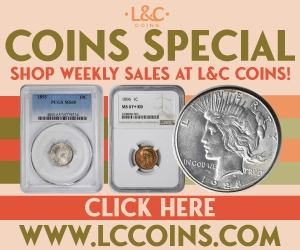By Charles Morgan and Hubert Walker for CoinWeek Notes …..
(n.)
Shill bidding is a practice in which a seller, consignor, or associated party places bids on a lot to increase its price or perceived desirability. This practice creates an unfair market and is prohibited in many venues.
Sellers may bid to protect their equity in a coin or other numismatic object, although most auction venues allow sellers to reserve their consignments. Sellers may also use shill bidding to artificially inflate the value of a coin to establish a high price level and then sell other similar coins at inflated prices. This type of shill bidding is difficult for collectors to sniff out, but coin dealers can generally suss out this activity.
Laws on shill bidding vary from state to state and are typically governed by each state’s licensing board. In the Commonwealth of Virginia, for instance, auction firms are not allowed to escalate bidding through false bids, through collusion with shill bidders, or knowingly accept bids made by the owner or on the owner’s behalf without first giving notice that this practice may occur. Similar laws exist in California, New York, and Texas – all states where major U.S. numismatic auction firms operate.
Online auction website eBay claims to have a sophisticated system to detect and monitor bidding practices such as this and prevent it.
* * *
